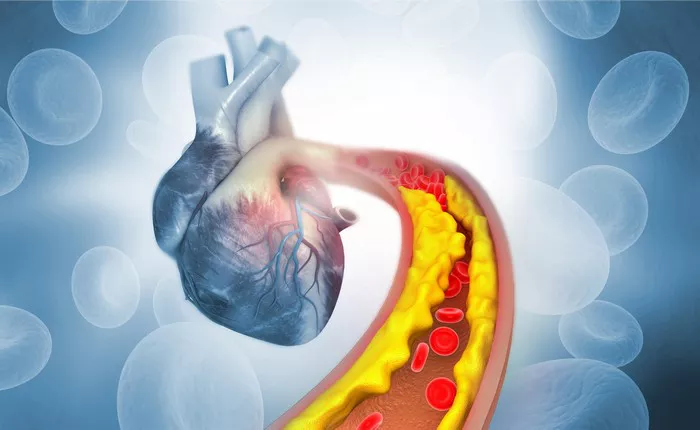Arrhythmias, or abnormal heart rhythms, encompass a diverse array of cardiac conditions that can have significant implications for cardiovascular health and well-being. While environmental factors and lifestyle choices play a role in arrhythmia development, emerging evidence suggests a strong genetic component underlying many heart rhythm disorders. In this article, we embark on a journey to explore the intricate interplay between genetics and arrhythmias, unraveling the genetic underpinnings of these complex cardiac conditions.
What Are The Causes of Arrhythmia?
Can be divided into congenital hereditary and acquired. Hereditary factors are mostly caused by gene mutations. Acquired factors include physiological and pathological factors. Physiological factors such as exercise, emotional changes, etc. can cause tachyarrhythmia, or bradyarrhythmia can occur due to sleep. Pathological factors include cardiac lesions and non-cardiac lesions.
Heart diseases include arrhythmias caused by coronary heart disease, hypertension, rheumatic heart disease, cardiomyopathy, myocarditis and congenital heart disease. Non-cardiac lesions can also induce arrhythmias, including: drug toxicity, acid-base imbalance and electrolyte imbalance, hyperthyroidism, stroke, thoracic spine trauma/thoracic facet joint dislocation, etc.
Genetic Basis of Inherited Arrhythmia Syndromes:
Several inherited arrhythmia syndromes have been elucidated, each associated with specific genetic mutations that disrupt cardiac ion channel function or myocardial electrical properties. These include:
Long QT syndrome (LQTS): Characterized by prolongation of the QT interval on electrocardiography and predisposition to life-threatening ventricular arrhythmias, LQTS is often caused by mutations in genes encoding cardiac ion channels such as KCNQ1, KCNH2, and SCN5A.
Brugada syndrome: Marked by ST-segment elevation in the right precordial leads on electrocardiography and an increased risk of ventricular arrhythmias and sudden cardiac death, Brugada syndrome is linked to mutations in genes including SCN5A, SCN1B, and CACNA1C.
Catecholaminergic polymorphic ventricular tachycardia (CPVT): Characterized by exercise-induced ventricular arrhythmias and syncope, CPVT is associated with mutations in genes encoding cardiac calcium-handling proteins such as RYR2 and CASQ2.
Genetic Screening And Counseling:
Advancements in genetic testing technologies have enabled the identification of pathogenic mutations associated with inherited arrhythmia syndromes, facilitating genetic diagnosis, risk stratification, and cascade screening of at-risk family members. Genetic counseling plays a pivotal role in the interpretation of genetic test results, informing individuals and families about the implications of genetic findings, recurrence risks, and strategies for risk reduction and management.
Complex Interplay of Genetic And Environmental Factors:
While genetic mutations underlie the heritable component of arrhythmias, the clinical expression and severity of these conditions are influenced by a complex interplay of genetic and environmental factors. Modifying factors such as:
- medication use
- electrolyte imbalances
- sympathetic tone
- lifestyle choices
can modulate arrhythmia susceptibility and disease progression, highlighting the importance of comprehensive risk assessment and personalized management approaches.
Future Directions in Genetic Research:
As our understanding of the genetic basis of arrhythmias continues to evolve, ongoing research endeavors seek to elucidate novel genetic determinants, elucidate genotype-phenotype correlations, and uncover molecular mechanisms underlying arrhythmia pathogenesis. These insights hold promise for the development of targeted therapies, risk stratification algorithms, and precision medicine approaches tailored to individual genetic profiles.
What Are The Related Tests for Arrhythmia?
1,Electrocardiogram examination. The electrocardiogram recorded during an arrhythmia attack is an important basis for diagnosing the type of arrhythmia.
2,Dynamic electrocardiogram can make up for the shortcomings of short-term recording of surface electrocardiogram and improve the detection rate of arrhythmia.
3,Wear electronic products with electrocardiogram monitoring (such as bracelets, wearable devices) to record the electrocardiogram during the attack at any time.
Conclusion
the genetic basis of arrhythmias represents a fascinating frontier in cardiovascular medicine, offering insights into the pathophysiology, diagnosis, and management of these complex cardiac conditions. By unraveling the genetic underpinnings of arrhythmias, we can enhance risk stratification, inform personalized treatment strategies, and ultimately improve outcomes for individuals and families affected by these disorders.
FAQs
Is heart disease a genetic disease?
While heart disease can have genetic components, it is not solely a genetic disease. Genetics can play a significant role in predisposing individuals to certain types of heart disease, such as coronary artery disease (CAD), familial hypercholesterolemia, and some types of cardiomyopathy. However, lifestyle factors, including diet, exercise, smoking, and stress, also heavily influence the development of heart disease. Therefore, while genetics can increase the risk of heart disease, lifestyle modifications and preventive measures remain crucial in managing and reducing this risk.
Is cardiovascular disease hereditary?
Yes, cardiovascular disease (CVD) can have a hereditary component. Some individuals may inherit genetic mutations or variations that predispose them to certain types of cardiovascular conditions, such as high blood pressure, CAD, or arrhythmias. Additionally, family history can be a significant risk factor for developing CVD. If close relatives, such as parents or siblings, have a history of heart disease, individuals may have an increased risk themselves. However, lifestyle factors also play a crucial role in the development of CVD, and adopting a heart-healthy lifestyle can help mitigate this risk, even in individuals with a genetic predisposition.
Can arrhythmia be cured?
Treatment options for arrhythmias may include medications to control heart rate and rhythm, procedures such as catheter ablation to correct abnormal electrical pathways in the heart, implantable devices like pacemakers or implantable cardioverter-defibrillators (ICDs), and lifestyle modifications.
In some cases, successful treatment may essentially eliminate the arrhythmia and its associated symptoms, providing long-term relief. However, in other cases, particularly with certain types of arrhythmias or underlying heart conditions, ongoing management and monitoring may be necessary to control symptoms and reduce the risk of complications. Therefore, while arrhythmias may not always be “cured” in the traditional sense, effective treatment can significantly improve quality of life and prognosis for individuals with these conditions.

